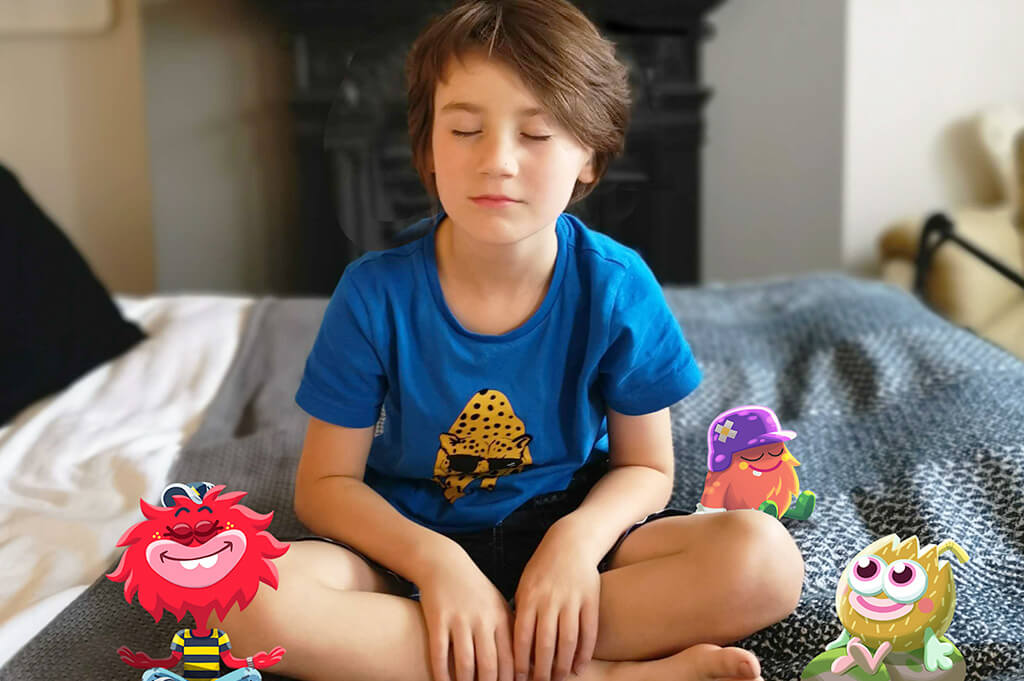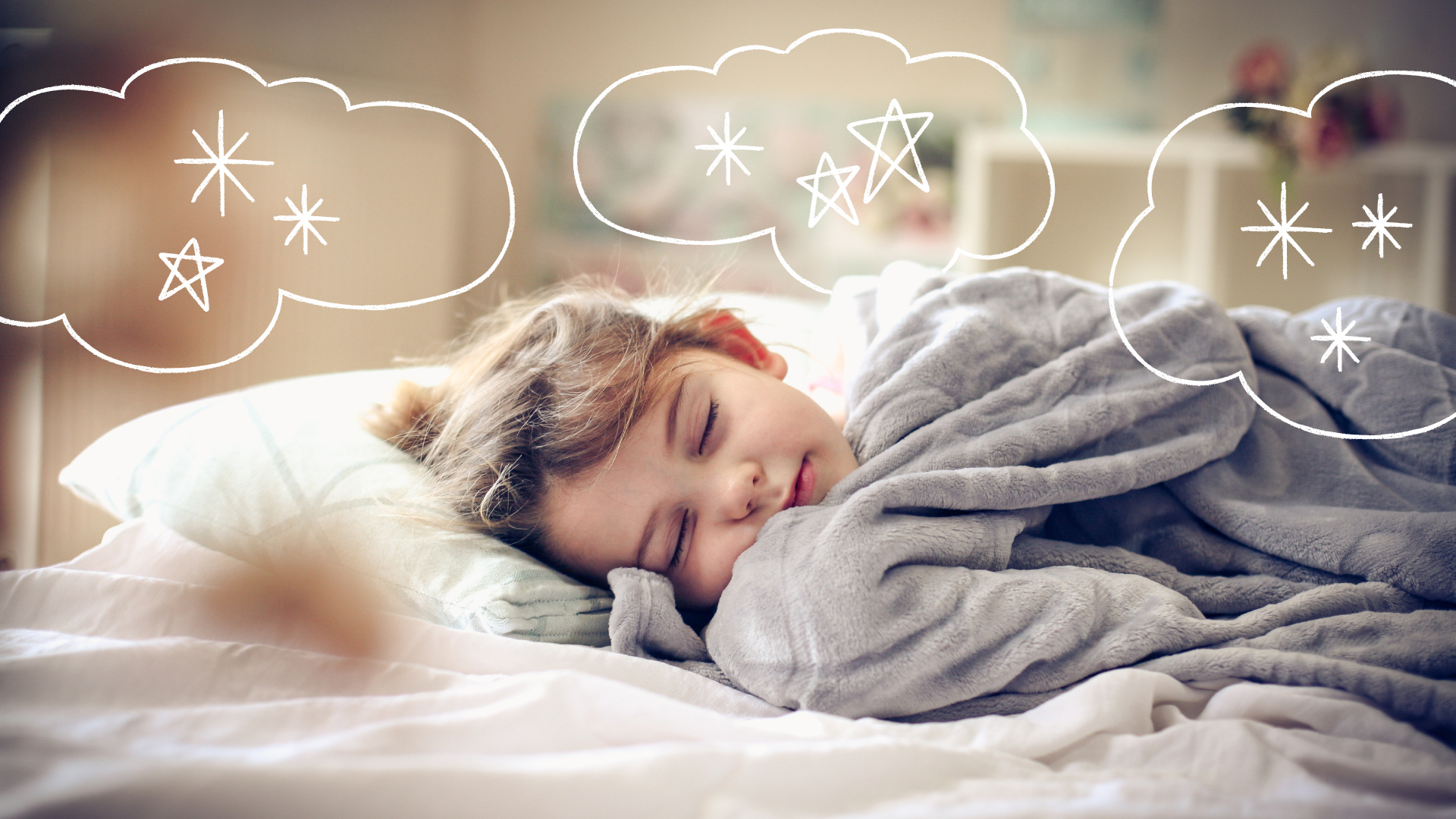
- 4 mins
A Simple Guide to Sleep Meditation for Kids

How zany do your dreams get? I love to analyze my dreams and wonder what that might mean. I remember having to read The Interpretation of Dreams by Sigmund Freud during my Counselling course and being fascinated. He believed dreams are a way of understanding the inner workings of the unconscious mind. Ultimately to express and fulfill a wish. Some scientists believe there are other reasons for dreams. Although it is impossible to understand the exact meaning of a dream, it might be worthwhile to wonder about your child’s dreams and what they could mean.
According to Sleep Foundation, dreams are thoughts, images, or feelings that happen during sleep with typical characteristics of a first-person narrative, illogical or emotional content, and waking life connections. While our bodies are resting, our brains work to make sense of things. The decision-making part of the brain switches off so our dreams can seem a bit far-out. Even if we don’t remember our dreams, we still have them. They help us learn, process, solve problems, and calm down after a busy day.
The first part of sleep is a lighter sleep. Later we go into a deeper part of our sleep called REM (Rapid Eye Movement). It happens during the final hours before waking. It’s when we have our most outlandish and imaginative dreams. Sometimes these dreams can be upsetting forcing us to wake up. Nightmares and frequent night wakings are common in toddlers, especially. A way to resolve this is through breathing techniques and meditation. This reduces the adrenaline response before bedtime. I recommend this for kids and parents! Our Nodkins Goes Dream-Hopping can help kids de-stress before bed. It is a lovely sleepy story about a Bedtime Bunny who can hop into other Moshlings’ dreams.
Amazingly, you absorb millions of details throughout the day. At night your brain tries to sift through the most important ones so it can store them away in your memory for good. Evidence suggests that sleep allows memory networks to reactivate when no new sensory input exists. So a great night’s sleep is great for kids as they can consolidate what they learned that day, which can lead to better academic outcomes.
Dreams also help us resolve some of the feelings we experience during the day. It’s the brain’s way of processing some of the tricky moments or interactions. By replaying things in our sleep, our creative problem-solving processes switch on, helping us overcome a difficulty. A good chunk of REM sleep might help us iron out a problem at work as an example. For kids, it might be something like how to ride a scooter or work out that puzzle they’ve been thinking about.
We aren’t able to control our dreams, however, we can reduce stress to increase our chances of more rewarding nighttime stories. Our top five family-friendly tips are:
Whatever the exact reason for having a dream, they are useful in helping us make sense of the world around us. I’m always amazed at how magnificent our bodies are.